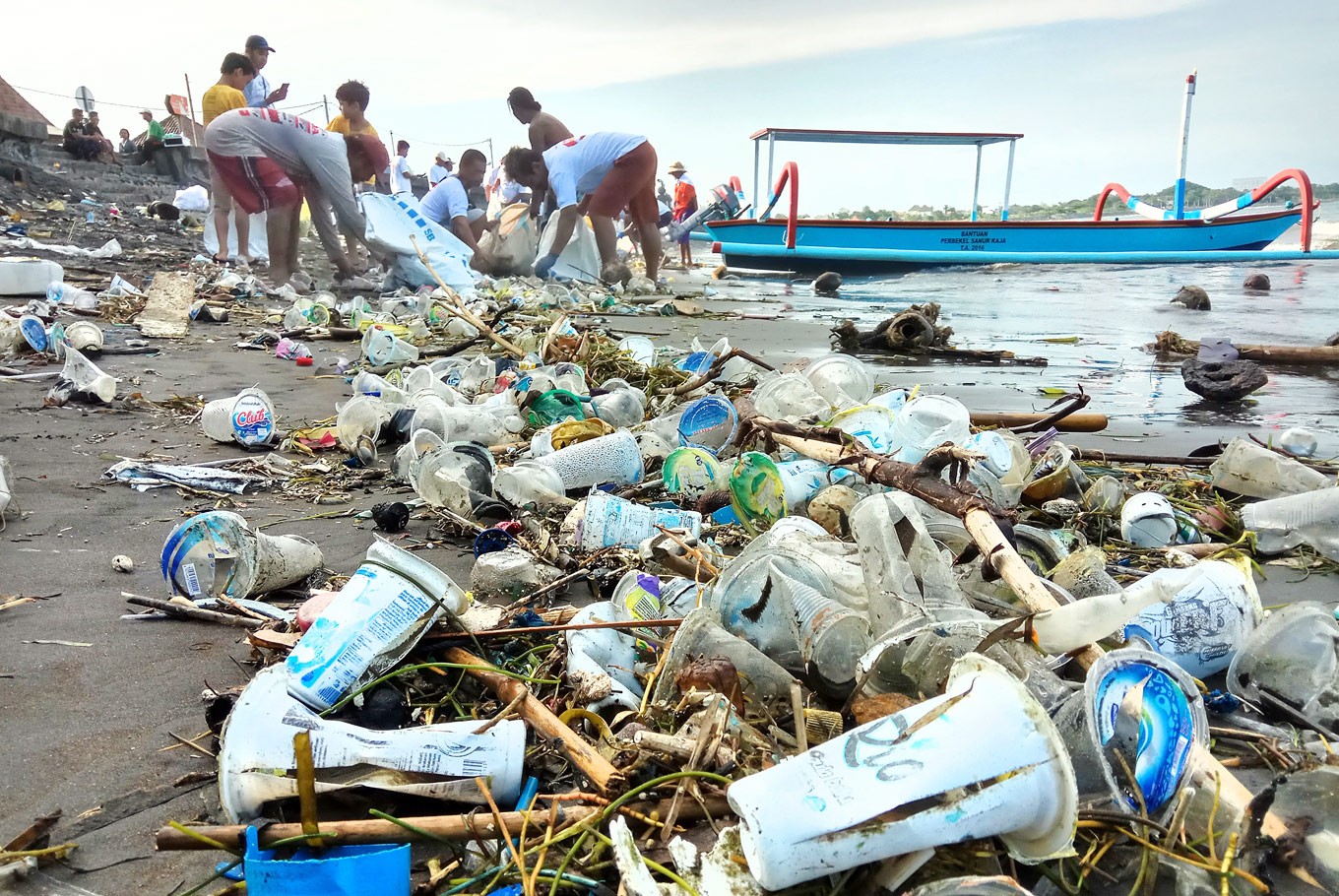Popular Reads
Top Results
Can't find what you're looking for?
View all search resultsPopular Reads
Top Results
Can't find what you're looking for?
View all search resultsInterpol's 30 Days at Sea identifies offenders in marine pollution crime
Change text size
Gift Premium Articles
to Anyone
I
nterpol, the world’s largest international police organization, has carried out a global investigation into marine pollution crime, and identified more than 500 offenses.
Interpol’s operation, code-named 30 Days at Sea, was initiated in response to a call to increase international enforcement against environmental crime. More than 5,200 inspections were carried out, identifying waste crimes and administrative violations in 84 countries and territories around the world.
More than 500 offenses were identified, including discharges of oil, shipbreaking, pollution of rivers, land-based run off to the ocean and more. At least 185 investigations have arisen from the campaign; which are expected to result in arrests and prosecutions.
“Criminals believe marine pollution is a low-risk crime with no real victims. This is a mistake and one which Interpol and our partners are addressing as demonstrated by this operation,” said Interpol secretary-general Jürgen Stock.
The extensive operation involved 276 law enforcement and environmental agencies across 58 countries and included a global network of 122 national coordinators; from border agencies to police forces, customs authorities and more.
“Marine pollution creates health hazards worldwide, which undermine sustainable development and requires a multi-agency, multi-sector cooperative response within a solid global security architecture,” said the Interpol chief.
Innovative technologies were used to detect offenses, including employing satellite images (in Argentina and Sweden), aerial surveillance (Canada and Italy) and night vision cameras. Drones were also used, including in Indonesia.
Notable offenses included the dumping of animal farm waste in Philippine coastal waters where local communities harvest shellfish and children play. A vessel in Germany was identified as discharging 600 liters of palm oil into the sea.
Illicit waste sites and waste trade routes were identified around the world, and Europe was involved in the majority of cases of waste trafficking, confirming the key role of this region in the illicit waste business.
Indonesia was reported as having committed administrative violations as an importer of waste but was not reported as committing other violations.
Plastic waste was one of the waste types found in illicit waste sites and trade routes, including hazardous plastic scraps, reminding people of the need to reduce plastic use and ensure its correct disposal. This comes at a time when Indonesian cities are focused on banning single-use plastic bags.
It is imperative that waste crimes affecting the ocean are tackled to protect assets such as coral reefs from degradation. Coral reef tourism is a billion dollar industry and 30 percent of the world’s reefs are valuable for tourism activities such as scuba diving. Indonesia is home to a number of world-class scuba diving destinations that need to be protected for generations to come and to ensure the continuation of this valuable industry.
While the results of the operation paint a harsh picture of marine pollution, the former UN Environment executive director Erik Solheim has said the issue of illegal marine pollution is one that global communities may be able to solve in the next decade.
“But we need the help of our law enforcement partners to make sure that there is no impunity for the perpetrators of marine pollution crime,” added Solheim.
"This is why law enforcement must team up on a global scale to build strong international links with specialized experts, so we can tackle this devastating crime while ensuring a healthier, safer planet for all," responded Europol Pperations Directorate deputy executive director Wil van Gemert.
The investigation has been followed by an awareness campaign with UN Environment to illustrate the impact marine pollution has on economic development, plus human and environmental security. Look for the hashtags #PollutionCrime, #30DaysatSeaand #CleanSeasto find out more. (kes)
***
The author is a diver and writer for LiveAboard.com











